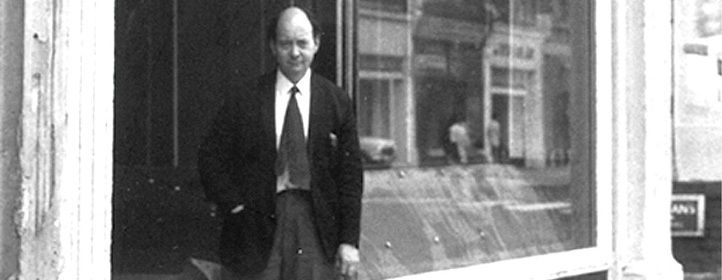Summer Holiday
- Cleaners HQ
- Apr 6, 2023
- 4 min read

From the Archives: I watch this at least once a year. It was the film that prompted Marshall Tito to ban Cliff and the film's director Peter Yates from Yugoslavia for life. So for the next few hundred words, we'll be going on a...
SUMMER HOLIDAY
The Observer called it “The most cheerful and skilful British musical of our generation.” Summer Holiday, first shown in British cinemas early in 1963, starred Cliff Richard and the Shadows, Una Stubbs, Ron Moody, Melvyn Hayes and David Kossoff. Interesting too, if not so well-known is the fact that the film's depiction of Yugoslavians as hapless peasants angered Marshall Tito enough for him to ban Cliff Richard and the film’s director, Peter Yates from that country for life. In the UK during the summer of 1962, when the film was being made, Cliff Richard and The Shadows were the UK's top pop stars. The Beatles, back then were still only an approaching jangle from some distant northern province.
By the time of the film's release, changes were becoming apparent however. Up until 1963, the average career-minded pop singer might enjoy a couple of years of stardom before attempting the transition to 'all-round entertainer'. With two films already on his cv, Cliff was well on-track. Summer Holiday leaned very much towards a traditional musical style. Although many of the show's 16 tunes were penned by show-veterans Pete Myers and Ronnie Cass, its two flagship songs, Summer Holiday and Bachelor Boy were written by members of The Shadows and Cliff himself.
Stanley Black, the film's musical director must have been an adventurous helmsman to have allowed free rein to such diverse song-writing teams. It was their combination, however, which helped make the film a hit. Almost six decades later it remains, a winning blend of youthful 60s optimism and standard showbiz schmaltz.
The song Bachelor Boy, was a last-minute entry. The production crews had already returned to the UK when The Shadows got in touch to announce that they had this terrific new song. The now-famous scene with the London bus and that daft skipping dance which accompanied Bachelor Boy, was therefore not filmed in Greece but in an Elstree Studio, which had been hastily mocked up to look vaguely Hellenic – only a partial success.
You could say that the story was corny, not very rock'n'roll and above all, unfeasible. The plot? Four young bus mechanics decide to convert a London double-decker bus into a sort of caravan which they'll drive across Europe as a prototype continental holiday. If it works, they reason, they may be able to develop the idea as a holiday business, with a fleet of similarly converted buses.
Ah, but they reckon without a famous teenage American stowaway, her conniving mother, and a trio of female singers whose car has broken down en route to Athens. Consequently, all manner of adventures and mishaps ensue, as well as lots of singing, dancing and yes, a big romance between the Bachelor-Boy-in-Chief and the U.S. lurve interest, played by Lauri Peters. As a personal footnote here, I'd just like to say that I'd have chosen the unutterably lovely Una Stubbs over Lauri Peters any time, but then that’s just me.
If you are a Shadows fan, however, this film is for you. In 1962 the band were absolutely at the top of their game. If, conversely, you are a fan of London buses, this film may also be for you. And yes, I know that the bus featured here isn't a Routemaster but one of its predecessors; the much-missed AEC Regent III RT. Now go away.
To sketch in some historical detail here, only 18 years before Summer Holiday was made, Europe was still at war. Since, in 1962 the package holiday hadn't become what we modernists now call 'a thing', groups of young lads didn’t usually go off together gallivanting across Europe: unless, of course, it was felt by the prevailing British government that someone over there had lately been getting above himself and needed a quiet word.
The bus route which Cliff took from London to Athens, was almost the same as the one which your young correspondent later took in the 1970s, on a somewhat less-fragrant hippie bus from London Victoria to Piraeus Harbour. The trip took in bits of France, Germany and Austria, before a long haul across the former Yugoslavia, over the Macedonian mountains and into Greece. I bet none of Cliff's party were hauled off the bus and searched as often as I was, although they did have to dodge a bit of gunfire.
To British cinema audiences struggling through the late winter slush of early 1963, the dazzling Aegean skies, the skimpy clothes and the cheerful danciness of Summer Holiday must have seemed irresistible. Then, to emerge from the cinema into the chilly air and hear Please Please Me spilling from nearby cafes might have alerted them to the changes on the way. Prophetically, early on in the film, as the London bus first heaves into view, everything fades up from 1950s monochrome into Technicolour. Within a year or two it would happen in real life.










Comments